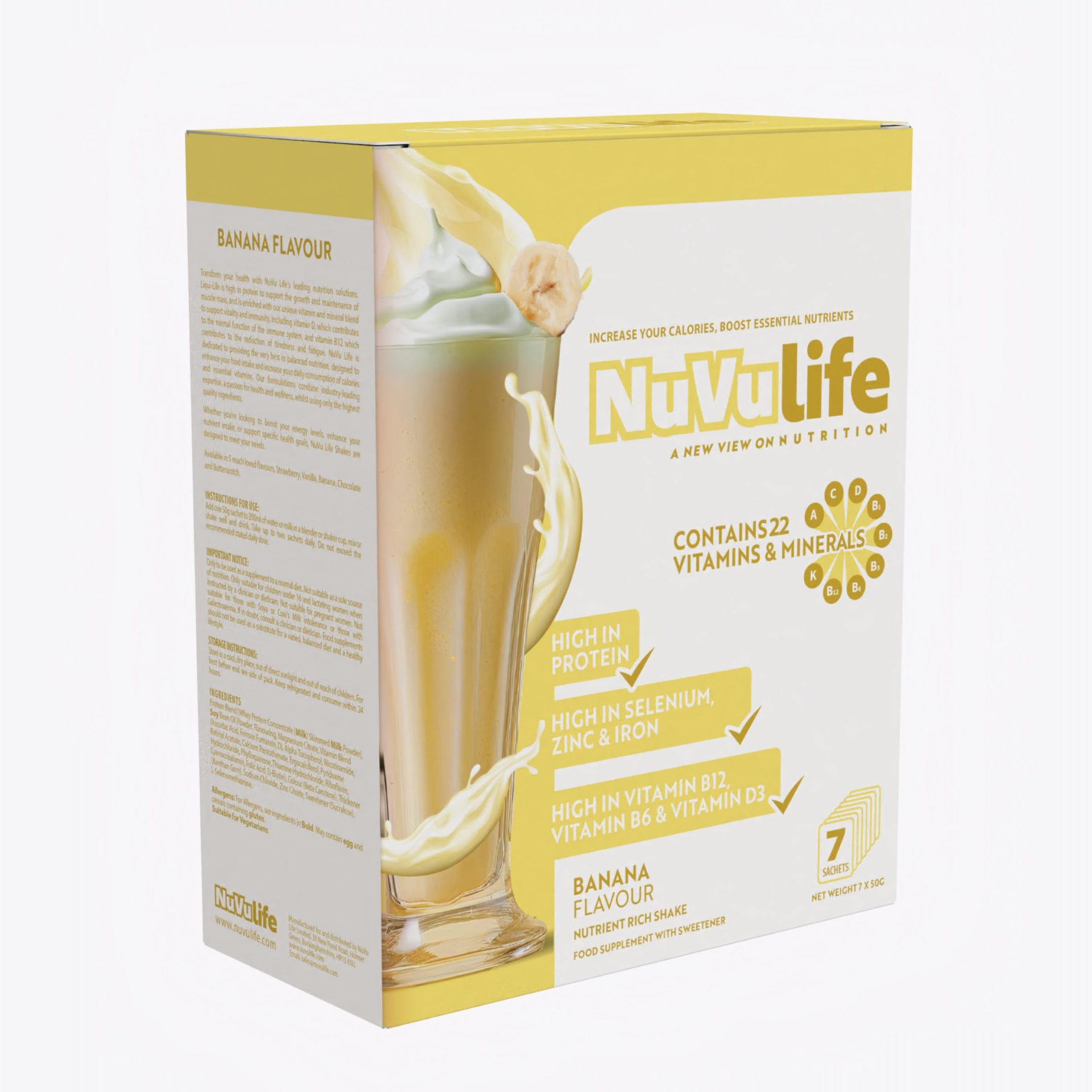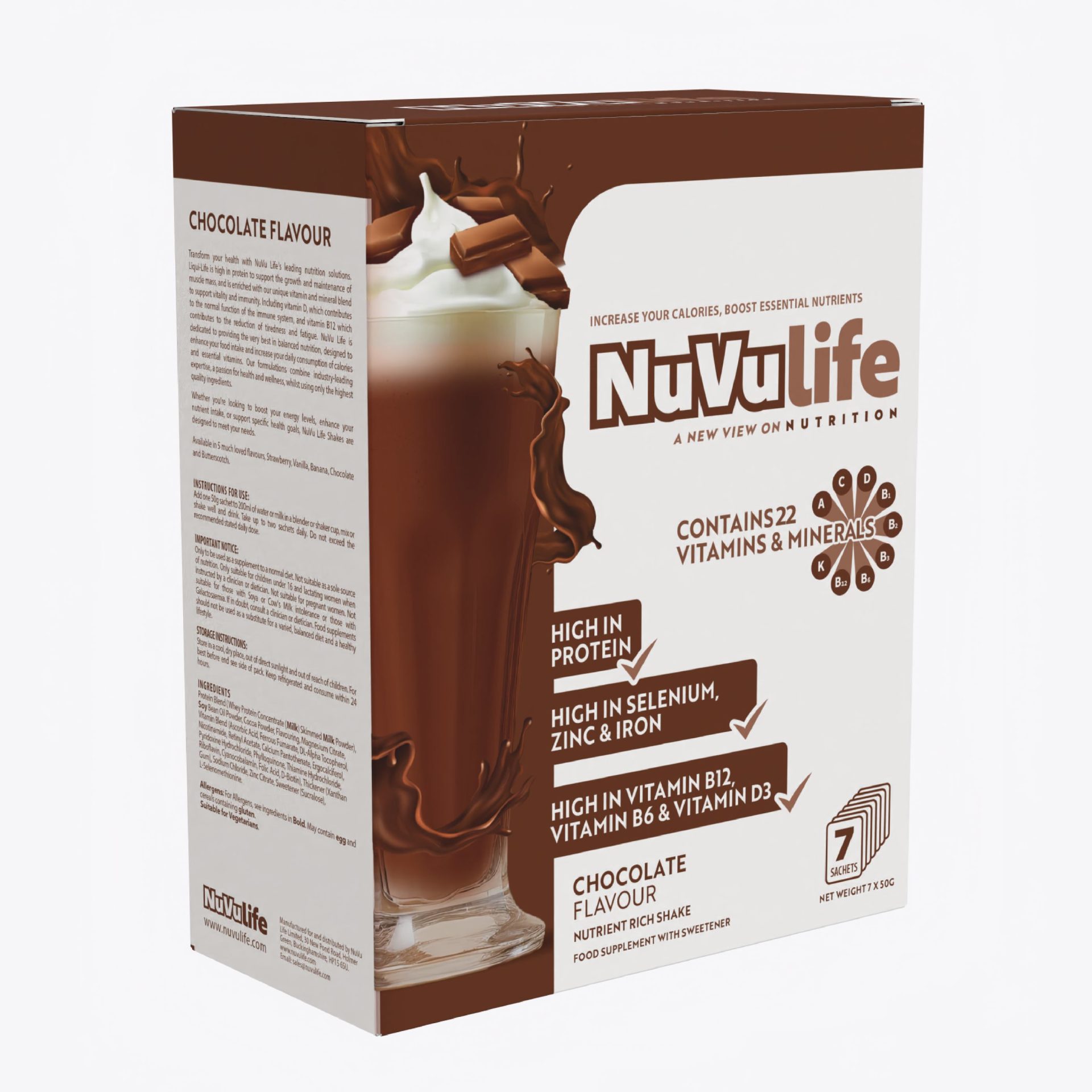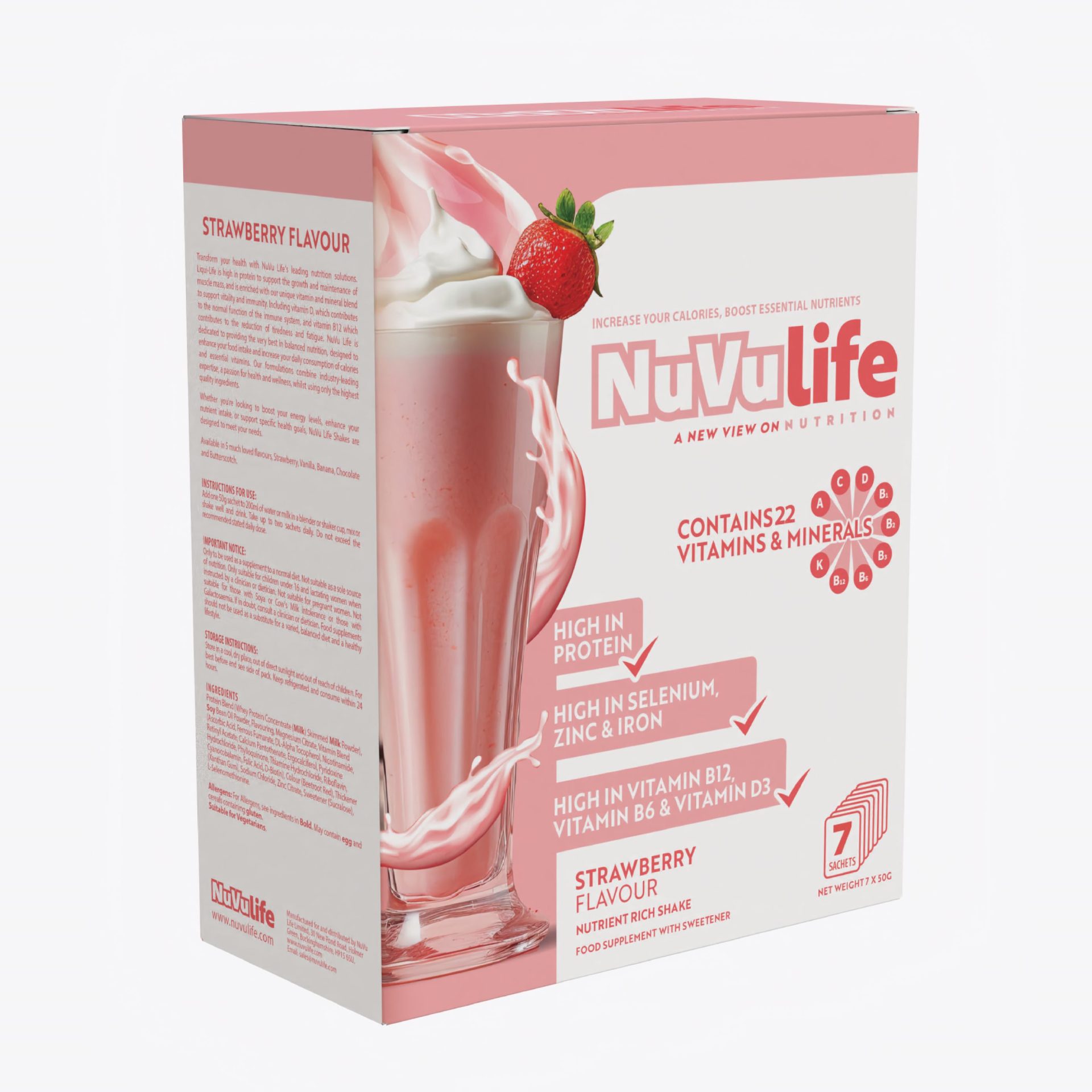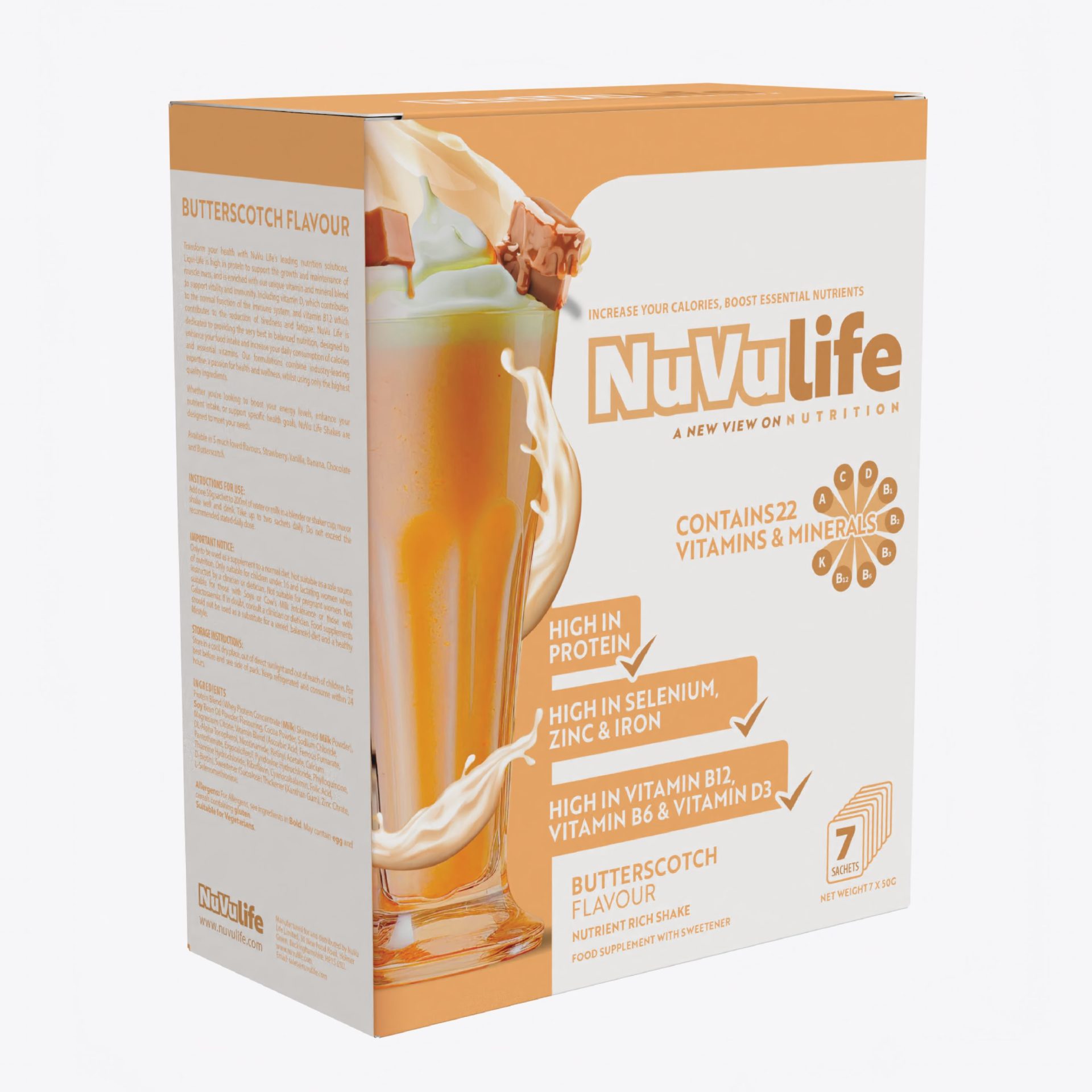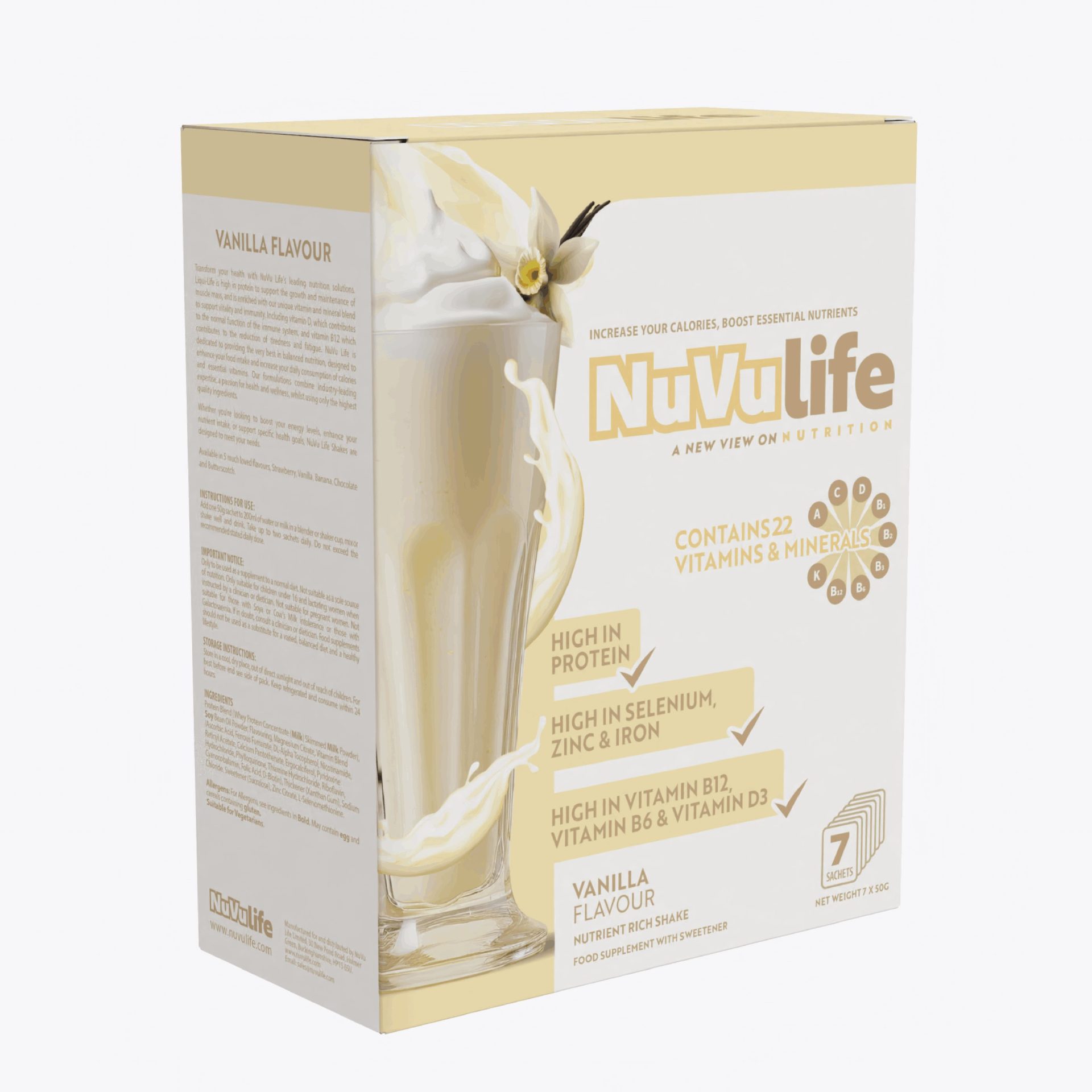Cancer treatments often bring significant nutritional challenges, with up to 80% of cancer patients experiencing malnutrition and 3 out of 5 patients report losing weight at some point in their cancer journey. Metabolic and psychological stress, poor appetite and sensory alterations can lead to this malnutrition.
Maintaining proper nutrition is vital for preserving strength, promoting recovery, and enhancing overall wellbeing, to ensure optimal treatment outcomes and quality to life.
Nuvulife meal replacement drinks provide a convenient, nutrient-rich solution to help cancer patients meet their dietary needs, even during times of reduced appetite.
Why Do Cancer Patients Lose Weight?
Weight loss in cancer patients can occur for several reasons:
- Before Diagnosis:
- Unexplained weight loss can be one of the first signs of certain cancers, including lung, pancreatic, stomach, or oesophageal cancers.
- This is caused by the body releasing cytokines, which fight cancer but also reduce appetite, increase metabolism, and lead to muscle loss.
- During Treatment:
- Cancer therapies like chemotherapy and radiotherapy can cause side effects that make eating difficult, such as:
- Loss of appetite.
- Mouth ulcers or a dry mouth.
- Nausea, vomiting, or diarrhoea.
- Changes in taste or smell.
- Pain and fatigue.
- Additionally, treatment can impair nutrient absorption, meaning the body gets less energy and protein from food.
- Cancer therapies like chemotherapy and radiotherapy can cause side effects that make eating difficult, such as:
- Cancer Cachexia:
Cachexia: This condition, characterized by the loss of muscle rather than fat, weakens the body, reduces energy levels, and may lower a patient’s ability to tolerate treatmentUnderstanding Nutritional Challenges During Cancer Treatment
Cancer-related malnutrition arises from a combination of reduced food intake and metabolic changes driven by the disease and its treatment. These challenges may include:- Loss of appetite due to treatments like chemotherapy or radiation.
- Altered taste and smell affecting food preferences.
- Difficulty swallowing or eating due to mouth sores or dry mouth.
- Fatigue reducing the energy required to prepare and consume meals.
What is Cancer-Related Fatigue?
Cancer-related fatigue is a persistent, subjective sense of physical, emotional, and/or cognitive tiredness that is related to cancer or its treatment. According to the National Comprehensive Cancer Network (NCCN), approximately 80% of cancer patients report experiencing fatigue during their treatment, which can profoundly affect their quality of life and ability to maintain proper nutrition.
Managing Fatigue
Fatigue can lead to decreased motivation to prepare and consume meals, contributing to poor nutritional intake. To manage fatigue effectively, the following strategies can be beneficial:
- Nutrient-Dense Foods: Focus on high-calorie and nutrient-rich foods to provide energy without requiring large volumes of food. This may include nuts, avocados, and protein shakes like Nuvulife.
- Small, Frequent Meals: Eating smaller amounts frequently can help prevent overwhelming feelings during mealtime while also boosting energy supplies throughout the day.
The Importance of Hydration
Why Hydration Matters
Hydration is crucial for maintaining energy levels, supporting digestion, and enhancing nutrient absorption. Research indicates that dehydration can worsen fatigue, increase the risk of urinary tract infections, and complicate treatment regimens. Hydration can also improve cognitive function, which is essential during treatment when mental clarity can be affected.
Hydration Strategies
- Fluid Intake Recommendations: Encourage a daily fluid intake of at least 8-10 cups (64-80 ounces) of fluids unless otherwise advised by a healthcare provider.
- Hydrating Foods: Include foods with high water content, such as soups, broths, fruits (like watermelon and oranges), and nutrient-rich beverages such as Nuvulife to meet hydration needs without excessive effort.
Addressing Taste Changes
Understanding Taste Alterations
Taste and smell alterations can occur in up to 83% of cancer patients undergoing treatment. These changes may lead to aversions to previously enjoyable foods, affecting overall intake and nutrition.
Coping Strategies
To mitigate the impact of taste changes, consider:
- Experimenting with Flavors: Use spices, herbs, and marinades to enhance flavor without overwhelming the palate. This can help awaken taste buds that may have dulled due to treatment.
- Choosing Temperature: Some patients find that cold foods (like smoothies) are more palatable than hot foods during treatment, as temperature may affect taste perception.
Why Nutrition is Vital During Cancer Treatment
With 30%–80% of cancer patients experiencing significant weight loss, proper nutrition is increasingly important due to several factors:
- Increased Metabolic Rate: Cancer can elevate the body’s metabolism, leading to muscle (lean body mass) breakdown, a condition known as cachexia.
- Reduced Nutrient Absorption: Treatments may impair how the body absorbs essential nutrients.
- Loss of Appetite and Eating Challenges: Symptoms like nausea, mouth ulcers, altered taste, and fatigue can further limit dietary intake.
The Role of Nutrition in Cancer Care
Cancer treatment profoundly impacts the body, often influencing what a person can eat, how nutrients are absorbed, and the body’s overall metabolic demands. Managing nutrition effectively during cancer is crucial to enhancing treatment outcomes, minimizing complications, and supporting recovery.
Key Nutrients Critical for Cancer Patients
Achieving the right nutritional balance is key to maintaining strength and energy. Key nutrients include:
- Protein: Recommended intake is 1.0–1.5g of protein per kilogram of body weight—almost double the needs of a healthy individual. Protein helps rebuild lean body mass and repair cells damaged during treatment.
- Omega-3 Fatty Acids: These anti-inflammatory fats improve appetite, food intake, and lean body mass.
- Micronutrients: Vitamins and minerals like Vitamin D, often deficient in cancer patients, are vital for overall health.
- Dietary Fibre: Helps manage side effects like diarrhoea and supports gut health.
How Nuvulife Helps Cancer Patients
Nuvulife’s nutrient-packed drinks provide an easy, reliable way to deliver essential nutrition:
- Complete Nutritional Profile: High in protein, vitamins, and minerals to support recovery.
- Gentle on the Stomach: Smooth and light texture minimizes discomfort.
- Convenience for Caregivers: Ready-to-drink format saves time and effort.
- Appealing Flavors: Designed to encourage intake, even for patients with reduced appetite.
Tips for Caregivers
- Serve Smaller, Frequent Meals: Encourage sipping Nuvulife throughout the day to increase nutrient intake without overwhelming the patient.
- Focus on Protein-Rich Options: Ensure meals include high-protein options to rebuild strength and support recovery.
- Introduce Flavors Gradually: Experiment to find flavors that the patient enjoys, making meals more enjoyable.
- Encourage Hydration: Incorporate Nuvulife as it provides hydration alongside essential nutrients.
Support Recovery with Nuvulife
Whether your loved one is undergoing treatment or in remission, ensuring they receive proper nutrition is key. Nuvulife meal replacement drinks offer a simple, nourishing solution to support their health journey. Visit our website to learn more.


